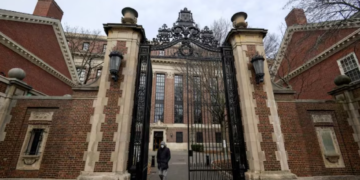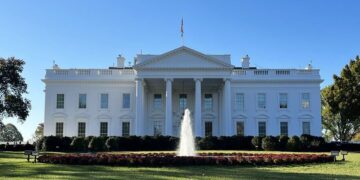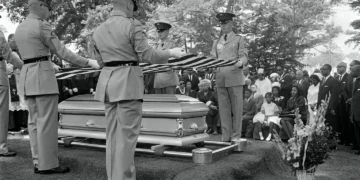Img source: carnegieendowment.org
May 15, 2024 Story by: Publisher
The enduring conflict between Israel and Hamas, now spanning seven months, has spurred global and domestic demands for a cessation of hostilities. Israel’s military response to Hamas’s attacks has resulted in significant Palestinian casualties, surpassing 30,000, and has exacerbated a humanitarian crisis in Gaza marked by food shortages. Within the Black American community, there’s a growing chorus of dissatisfaction with the Biden administration’s approach to Gaza, particularly among activists, intellectuals, and religious leaders.
Even prior to the escalation of the Gaza conflict, pressure from younger congregants prompted African American religious leaders to urge Biden to advocate for a ceasefire. Notably, leaders within the African Methodist Episcopal Church, a longstanding institution within Black America, called for a halt to all financial aid to Israel back in February.
A Carnegie survey conducted in late October 2023, during the conflict’s early stages, revealed significant Black American support for Israel, but also a prevailing sentiment favoring greater restraint towards Palestinian civilians. However, a more recent poll conducted in March 2024 indicates a shift in Black American opinion, with a majority now advocating for a more active U.S. role in ending the conflict and safeguarding Palestinian lives.
| Img source: carnegieendowment.org |
Key findings from the latest survey include:
- A substantial majority (68 percent) of Black Americans support a U.S. call for an immediate and permanent ceasefire in Gaza.
- Three in five Black Americans (59 percent) believe that U.S. military aid to Israel should be contingent on its use aligning with legitimate self-defense principles and human rights standards.
- Despite commentary on dissatisfaction with Biden’s Gaza policy, the sentiments towards the President among Black Americans have largely remained unchanged since the conflict’s onset.
- An increasing number of Black Americans feel connected to the plight of Palestinians, with 45 percent expressing solidarity, compared to 32 percent in the previous survey.
The survey also reflects generational and political consistency in Black American attitudes towards the conflict, with no significant disparities among age groups or political affiliations in support for a U.S. ceasefire initiative. Source: Carnegie Endowment for International Peace
Moreover, there’s a growing sense of engagement with the Palestinian cause within the Black community, evidenced by heightened awareness and concern over the humanitarian crisis in Gaza. This evolving sentiment may have implications for U.S. policy and political dynamics, particularly given the upcoming presidential election and the potential impact on voter support among critical demographics within the Black community.

















